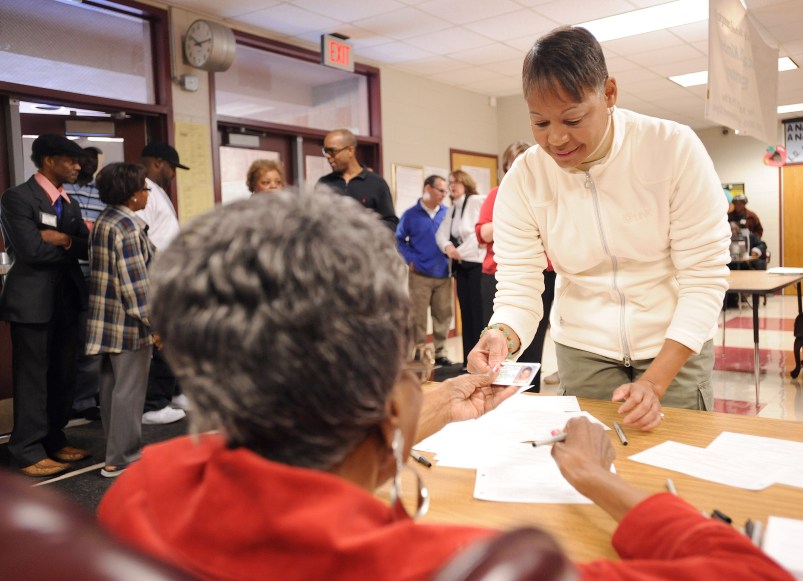With Election Day three months behind us and new legislators settling in across the country, Republicans in many states are trying to push new laws that would require photo ID at the polls. The laws, they say, would prevent rampant voter fraud.
Seven states already have laws requiring photo ID at the polls. Another 19, including some of the states below, require some form of identification, but it doesn’t need to have a photo.
Critics say it such requirements impose undue hardships on those trying to vote, reminiscent of the literacy tests of yore that kept black voters from voting in the South.
Voter fraud does happen, of course. In Troy, N.Y., for example, two Democratic officials were indicted on Friday for allegedly forging absentee ballots in a primary for local office in September 2009. In Wisconsin, prosecutors charged 20 people today with voter fraud for a variety of apparently unrelated offenses, including felons who voted and a man who voted under his dead wife’s name to, according to the AP, fulfill her dying wish to vote for President Obama.
A myriad of other claims this past Election Day — that dead people were voting in Kansas; that Democrats were busing illegal immigrants into Arizona to vote; that Sen. Harry Reid was bribing students with pizza; that a Latino rights group was mailing in fraudulent voter registration forms in Yuma County — were proven false.
Here’s a rundown of some of the laws being debated around the country:
Texas
Gov. Rick Perry (R) declared a bill requiring voters to present photo identification at the polls to be “emergency legislation,” putting it on the fast track to passage. On Wednesday, the Texas state senate voted yes. It moves on to the House next, where, according to the Star Telegram, it is “virtually guaranteed” to pass.
Student IDs will not be accepted as photo ID; driver’s licenses, passports and concealed carry gun licenses will be. People 70 and older are exempted.
Because of past voting rights violations, mostly against blacks after Reconstruction, Texas is one of a handful of states that must get Justice Department approval for any changes in voter law.
Kansas
Kansas last year elected one of the more vocal anti-immigration politicians in the country to be their secretary of state. Kris Kobach, who helped write Arizona’s controversial immigration law and goes around the country pushing for similar legislation, considers part of his fight to be against illegal immigrants who would influence our elections. Kobach ran on a platform of stopping voter fraud, and his proposed legislation would require photo ID to vote, require proof of citizenship to register and upgrade double-voting from a misdemeanor to a felony.
Wisconsin
A Democratic state senator, in an effort to prove to his Republican colleagues that their proposed photo ID law isn’t needed, says he asked every county clerk in his nine-county district for all instances of voter fraud last year. He says they only turned up one: A 91-year-old woman who voted in person after she forgot that she had mailed in her ballot.
Minnesota
Minnesota Republicans also want to impose a photo ID law. They are also proposing a slew of other restrictions, including prohibiting health care workers from assisting disabled voters at the polls.
North Carolina
A new Republican majority in the state legislature there wants a photo ID law.
Their constituents are “looking to ensure the validity of their own vote,” said one Republican lawmaker. But to the president of the state NAACP, “What they’re talking about is a step backwards to the poll tax.”






